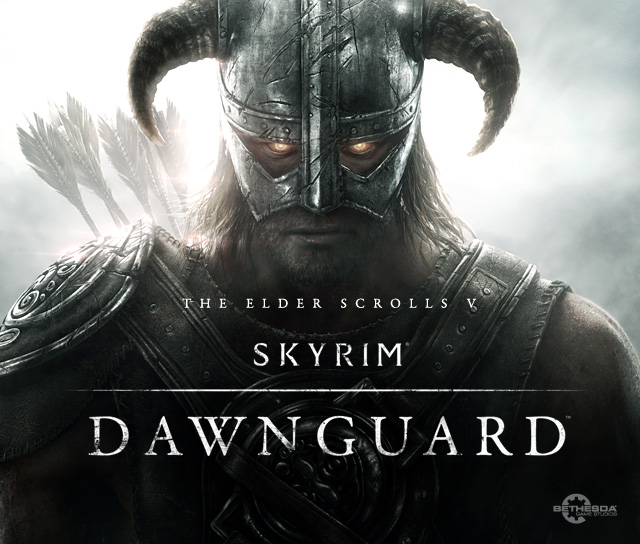Vivas Kaul ponders the concept of re-reviewing video games, and wrestles with the issue to such an extent that in the heart of the American election season there’s only one thing he can do to resolve it. Have a debate…with himself!
In the subjective world of video game reviews, it’s not uncommon to find reviews that people agree with implicitly on every level and some that people couldn’t disagree with more. Sometimes people want their opinions validated by someone outside of themselves, others want legitimate purchasing advice. Meanwhile, the rest read a review purely for the entertainment value. To veteran PlayStation LifeStyle and Game Revolution writer Daniel Bischoff this reality was just another day in the digital cubical that we call the WordPress backend of the site. So I can imagine that when he was handed The Elder Scrolls V: Skyrim to review he was probably excited about being chosen to review it, but was committed to treating it like any other game. Unsurprisingly, Bischoff loved the game and showered upon it heaps of praise which culminated in a perfect score for the title.

Indeed, he wasn’t alone in this. Numerous websites gave The Elder Scrolls V: Skyrim glowing reviews and heaps of critical acclaim ripe with choice quotes ready to be cherry picked for the next TV marketing blitz, or for back of box blurbs. But a strange thing happened after Skyrim was released. It was as though the game playing world did a collective double-take. “Wait a minute….” they all said, “This game is straight-up broken!”
A battle ensued across every corner of the internet that ironically would have been perfectly fitting in The Elder Scrolls universe. It became awesome to make fun of Skyrim, and YouTube became a repository for videos and clips showcasing all manner of bugs, glitches, and problems. Everything from backwards flying dragons to breaking line of sight with buckets was present. News reports on hilarious glitches and game breaking issues became an almost daily occurrence.
Amidst all this, PlayStation LifeStyle received an enormous amount of backlash from our readers. Indeed, while the 360 and PC versions suffered from bugs that at the time (and still are) hilarious, the PS3 version suffered from numerous issues that for many players coalesced to make the game unplayable.
Editor-in-Chief Anthony Severino recalled the atmosphere of the time. “We had been receiving some pretty nasty emails, some even death threats (I kid you not) telling us we needed to alter our review of Skyrim because it was unplayable for many.” Hang on a minute….our users expected Daniel to alter his review, his personal account and assessment of his individual play experience, to be better in line with theirs? At the time, he hadn’t experienced bugs, so he couldn’t comment on it. Outside of the bugs, Skyrim is a 10/10 experience, so his opinion was that he played a top scoring game. Even if he had wanted to….could he even do that? Has anyone ever re-reviewed a game? What would be the point?
Sometimes our readers aren’t the ones clamoring for a game to be re-reviewed. There have been times where I’ve been contacted by developers directly asking me to re-review a game post-patch that I’ve given a terrible, but justified score. At first I thought the idea was ridiculous. “That’s my story and I’m sticking to it!” I mentally rationalized. But that got me thinking. Is a patch enough to make an entirely new game? Certainly there are precedents for it. In the world of competitive e-sports, games are updated all the time via patches and updates. Of course, these changes are often unnoticeable to the average gamer, but a hardcore e-sports competitor would be able to tell if Cyrax’s 100+% damage reset combo had been nerfed or if the Protoss got a massive set of new buffs. I mean is World of Warcraft still the same game this long after release? Should we take into account all of the new lands in addition to the core content? A debate began to rage within me and I did the only thing that made sense. I got a pen and paper, drew a line down the middle, and wrote “Pros” on one side and “Cons” on the other.

First the Pros. What good could come of re-reviewing a game? If we stick to our Skyrim example, clearly we could analyze the glitches and bugs that have sprung up since Bischoff last reviewed the game. We could discuss how Bethesda has released patch after patch that have made the game playable for a wider segment of their audience while also making the game unplayable for others or introducing further problems. We could incorporate a discussion of the total lack of DLC support for the PS3 version, which as of the time of this writing, has still not been adequately explained by Bethesda. Most importantly, we could discuss what potential implications this could have for the game’s legacy. It’s this last point that makes the prospect of a re-review most intriguing.
As far as The Elder Scrolls as a franchise is concerned, Skyrim represents an engineering marvel in which a large world plays host to player exploration and scripted quests, but also plenty of random crazy events. I suppose that in our hypothetical re-review we could talk about how this dichotomy of design ideas is responsible for most of the problems with Skyrim. This whole ‘have your cake and eat it too’ philosophy from Bethesda that, while ambitious in concept, was poorly executed in practice. We might even speculate that this core design idea is responsible for the on-going difficulties that the PS3 version of Skyrim continues to have, and why none of the DLC content has been released on the platform.

This shows that a re-review could be an awesome thing if done right. It would allow us the chance to re-evaluate a game in its most complete state. It would allow our reviewers the chance to incorporate new ideas into their reviews. After all, a review is totally subjective, and a person’s opinions on something can change over time. Who knows? Maybe Daniel Bischoff is just waiting for a chance to jump onto WordPress and exclaim from the rooftops that Skyrim sucks and no one should play it.
As for the Cons…actually wait I have only have three Cons here. First, there are a lot of games coming out! We just don’t have the time to re-review a game. Hell with all the patches, updates, and DLC offerings we could write volumes on Skyrim alone and never be done. We wouldn’t be able to cover all of the great games out there. Don’t those games deserve some attention too?
Plus wouldn’t re-reviewing a game make any kind of critique completely meaningless? Developers and publishers would love it if reviews had no weight whatsoever and could be altered just by putting out a patch. Got a bad Metacritic score? Release a patch and watch your average skyrocket! It would be a complete disincentive for publishers to ensure their game works out of the gate. And it probably wouldn’t even matter if the patch worked as intended or not. It would be like the digital equivalent of the placebo effect, as the act of getting a patch of any kind would be enough to provide peace of mind to the consumer. But then we as reviewers would lose that which means the most to us, and that is the trust of our audience.
The same reviewer would also be unable to view the game objectively. Having played through the game once already he or she would have to contend with their own bias having been magnified by their impressions from the first time they played. So is the whole staff just supposed to pass around a game ad infinitum until people/developers/publishers get the review they want? Should we review every patch update to Skyrim as though it were a new variant of the original game, like Street Fighter 2 versus Street Fighter 2: Championship Edition or Street Fighter 2: Turbo EX Alpha Beta Omega Pledge Week?
I guess that the best hope for anyone wanting a game to be given a second look is if a game were re-released. And so at this time I would like to announce that you should all look for our re-review of Skyrim when it’s released as part of the The Elder Scrolls: Arrow to the Knee HD Collection releasing in 20XX.








